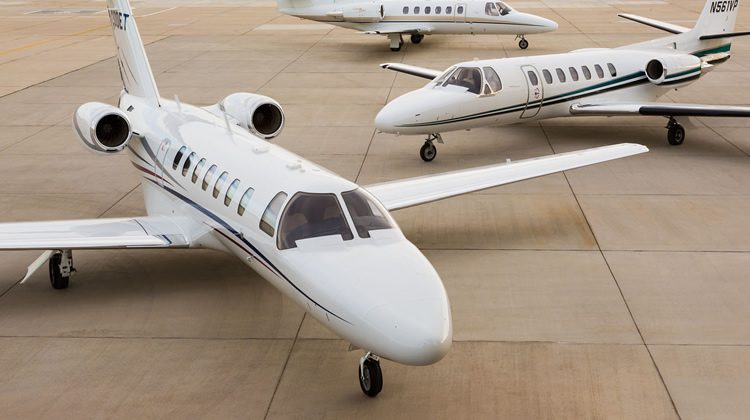Business
Import Duty Issues May Lead FG to Ground 60 Private Jets Today

The Federal Government is set to ground 60 private jets over unpaid import duties, a move that could significantly impact the private aviation sector in Nigeria.
The Nigerian Customs Service, acting on behalf of the Federal Government, will today ground more than 60 private jets belonging to prominent individuals across the nation due to unpaid import duties amounting to several billion naira.
According to reports, most private jets in the country have not had their duties paid, and the NCS is attempting to recover unpaid import fees amounting to several billion naira.
The development allegedly prompted the NCS to conduct a one-month verification exercise for all private jet owners in the country between June and July.
The recent decision to ground the private jets comes nearly three months after the NCS verification exercise.
The NCS has officially notified leading private jet owners, who will be impacted by the decision.
The documents indicate that most of the impacted aircraft are foreign-registered private jets owned by Nigerians.
The list of luxury aircraft includes the Bombardier Challenger 604 CL-600-2B16, Bombardier Challenger 3500, and several models from the Bombardier BD-700 series: Global 6000, Global 6500, and Global 7500. Each Bombardier BD-700 Global 7500 is estimated to cost over $70 million, whereas both the Global 6500 and Global 6000 versions have price tags exceeding $50 million.
Eleven private jet owners have already been notified about the grounding of their aircraft, and The PUNCH has learned that at least 55 additional operators are expected to receive their letters today (Monday).
This information emerged after learning that several prominent private jet operators had lobbied the Presidency in anticipation of the grounding exercise scheduled for Monday. However, our correspondent discovered that the Presidency chose not to intervene in the matter.
It was learned that this development prompted some operators to start the process of paying the import duty. Officials mentioned that several private jet owners have promised to settle the duty by this week.
Operators of a U.S.-registered Gulfstream G650ER jet, owned by a prominent Nigerian bank, have allegedly paid an import duty of N5.3 billion to circumvent the enforcement campaign.
The Customs had successfully recouped some duties for the government coffers during a similar operation in 2019.
However, in the letters reviewed on Sunday, aircraft owned by well-known individuals and corporate entities were prohibited from flying until all outstanding fees were paid.
This enforcement measure is anticipated to produce substantial revenue for the government.
Three of these aircraft, scheduled to be grounded today, were reportedly flown out of the country. Nonetheless, they will be grounded as soon as they return.
Officials, speaking on condition of anonymity due to not being authorized to discuss the matter publicly, stated that the Nigerian Customs Act of 2023 grants authority to the customs service to penalize owners or importers of goods brought illegally into Nigeria.
The official stated that the NCS had sent demand notes to all affected owners and importers, directing them to pay any outstanding duties on their private aircraft.
Some aircraft owners have begun negotiations with the NCS to resolve their outstanding payments, while others have provided written commitments to settle these dues once they return to Nigeria.
It is estimated that the NCS could generate more than 260 billion Naira from this enforcement exercise.
The findings indicated that the NCS had sent letters to both the Nigerian Civil Aviation Authority and the Nigerian Airspace Management Agency, asking them to deny flight clearances for identified aircraft until either duties were paid or further instructions from the NCS were provided.
In correspondence viewed by our reporter, the Nigerian Airspace Management Agency confirmed receiving a letter from the NCS about recovering import duties on illegally imported private aircraft.
The agency released a Notice to Airmen and instructed Air Traffic Control units to ground any non-compliant aircraft beginning October 14, 2024, until they receive clearance from the Nigeria Customs Service.
NAMA also urged that details of cleared aircraft be promptly communicated to avoid complications and ensure seamless coordination. The agency affirmed its complete support and cooperation in improving transparency in flight operations, thereby contributing to the nation’s economic prosperity.
In July, Adewale Adeniyi, the Comptroller General of NCS, stated that certain private jets were departing from the country to avoid undergoing the verification process.
“Only a small number of private jet operators have come forward for verification, and we’ve learned that many are leaving Nigeria since the announcement, likely to avoid being verified,” he stated.
The CGC stated that they initiated the private jet verification exercise to address the increasing number of private jets operating beyond legal boundaries.
“We have observed numerous instances of these aircraft in flight, yet our records indicate that only a handful have fulfilled their duty payments. This is the reason behind initiating this verification process,” he stated.
The CGC announced that information from the Nigerian Civil Aviation Authority showed that, despite numerous private jets operating in the country, only a small number of them had paid customs duties.
“We found that many private jets in Nigeria are operating outside legal regulations. According to the data we received from the NCAA, only a small number have paid customs duty for operation within the country,” he stated.
The head of customs stated that, under international aviation regulations, private jets entering the country are required to pay duty.
“If they are in Nigerian airspace for a short time and then leave, they’re not required to pay any duty as long as the visit is temporary. However, if they remain and their presence involves utilization within Nigeria, then paying duty becomes necessary.”
